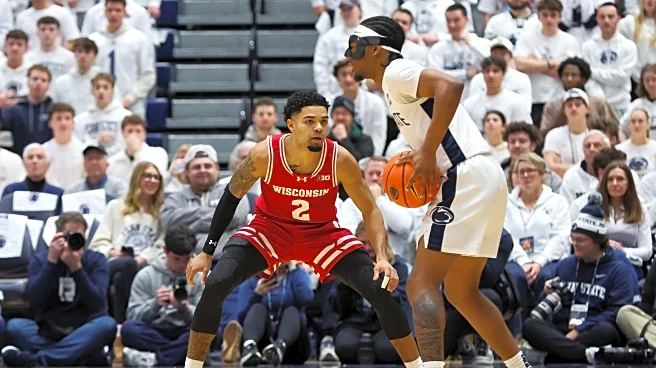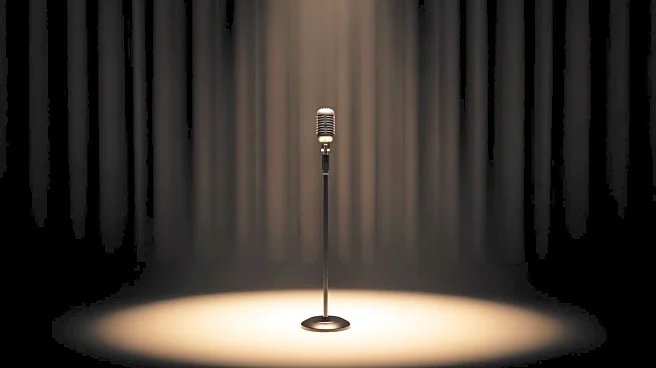What's Happening?
The traditional notion of 'toughing it out' when it comes to pain is being challenged by health advocates who emphasize the importance of preventative care. Historically, men have been encouraged to endure pain, viewing it as a test of strength. However,
this mindset often leads to chronic issues that affect mobility and performance. Research indicates that men are less likely than women to seek medical advice for musculoskeletal pain, often waiting until the pain becomes debilitating. This delay can result in lost workdays and preventable injuries. The article suggests a shift from reactive to preventative care, advocating for small, consistent actions like stretching and mobility exercises to maintain health and prevent breakdowns.
Why It's Important?
This shift in perspective is significant as it addresses a cultural norm that has long impacted men's health negatively. By promoting preventative care, there is potential to reduce the incidence of chronic pain and improve overall quality of life. This approach not only benefits individuals by enhancing their physical and mental well-being but also has broader implications for public health systems by potentially reducing healthcare costs associated with treating advanced musculoskeletal conditions. Organizations like Musculoskeletal Health Australia are leading initiatives to encourage daily movement, which can be easily integrated into daily routines, thus making preventative care accessible to a wider audience.
What's Next?
The movement towards preventative care is gaining momentum, with initiatives like the 2025 World’s Biggest Sit-In encouraging participation in daily movement routines. This event aims to raise awareness and promote small, sustainable ways to incorporate movement into everyday life. As more individuals and organizations adopt this approach, there may be increased advocacy for policy changes that support preventative health measures. Additionally, there could be a cultural shift in how strength and health are perceived, moving away from endurance of pain towards a focus on longevity and vitality.
Beyond the Headlines
The cultural shift from enduring pain to embracing preventative care could have long-term implications for how masculinity and strength are defined. This change challenges traditional gender norms and promotes a more holistic view of health that values self-care and proactive health management. It also highlights the importance of mental health, as physical well-being is closely linked to mental clarity and energy levels. As this perspective gains traction, it may lead to broader societal changes in how health and wellness are approached across different demographics.















